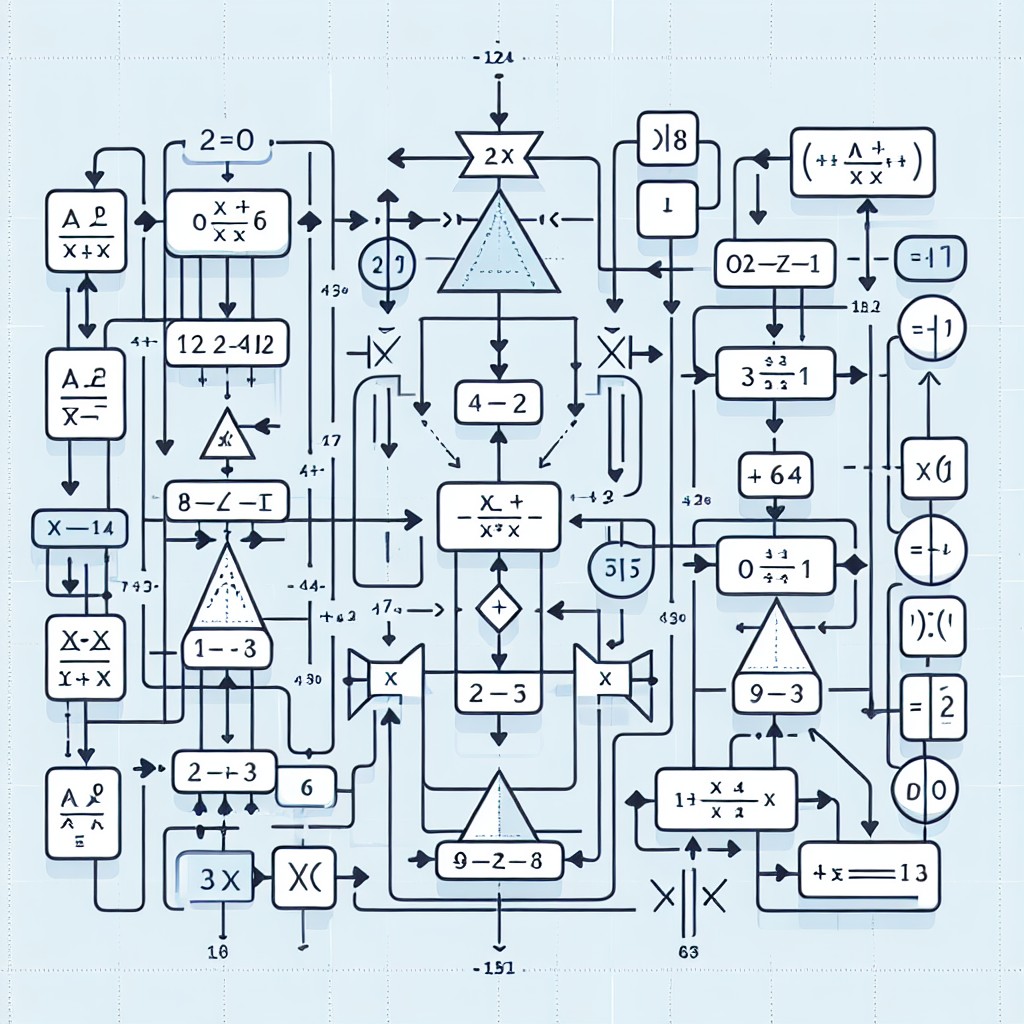Equations are powerful tools that have the ability to solve complex problems and provide insights into the world around us. From the simplest calculations to the most intricate scientific research, math plays a crucial role in everyday life. Whether it’s calculating the cost of groceries, designing a bridge, or understanding the behavior of particles in a chemical reaction, math is at the heart of problem solving.
Mathematics is not just a subject taught in schools; it is a fundamental part of our daily lives. It helps us make sense of the world and provides us with the tools to navigate through it. From managing personal finances to making informed decisions about health and well-being, math is an essential skill that empowers individuals to make better choices.
Key Takeaways
- Equations are a powerful tool for solving real-world problems.
- Math plays a crucial role in tackling complex issues across various fields.
- Equations are essential in scientific research and development.
- Math is applied to engineering, technology, economic, business, environmental, social, political, healthcare, and medical challenges.
- The future of math is promising in solving global issues for a better world.
Understanding the Role of Math in Tackling Complex Issues
Mathematics is particularly important when it comes to tackling complex issues that require analytical thinking and problem-solving skills. For example, climate change is a complex issue that requires mathematical models to understand and predict its impact on the environment. By using equations to model the behavior of greenhouse gases and their effect on temperature, scientists can make informed decisions about mitigating climate change.
Another example is in the field of economics, where math is used to analyze market trends, forecast future demand, and optimize resource allocation. By using equations to model supply and demand, economists can make predictions about the impact of policy changes or market fluctuations on prices and production levels.
The Importance of Equations in Scientific Research and Development
Equations play a crucial role in scientific research and development by providing a framework for understanding and predicting natural phenomena. For example, in physics, equations such as Newton’s laws of motion are used to describe the behavior of objects in motion. These equations allow scientists to calculate the trajectory of a projectile or predict the behavior of celestial bodies.
In chemistry, equations are used to describe chemical reactions and calculate reaction rates. By understanding the underlying equations, chemists can design new materials, develop new drugs, and optimize industrial processes.
Applying Math to Engineering and Technology Challenges
| Metrics | Description |
|---|---|
| Number of Engineers | The total number of engineers involved in applying math to engineering and technology challenges. |
| Success Rate | The percentage of successful applications of math to engineering and technology challenges. |
| Cost Savings | The amount of money saved by applying math to engineering and technology challenges. |
| Time Savings | The amount of time saved by applying math to engineering and technology challenges. |
| Efficiency Improvement | The percentage of improvement in efficiency achieved by applying math to engineering and technology challenges. |
Mathematics is the language of engineering and technology. From designing bridges and buildings to developing computer algorithms, math is used to solve complex engineering and technological challenges. For example, civil engineers use equations to calculate the load-bearing capacity of structures and ensure their safety. Electrical engineers use equations to design circuits and optimize power distribution.
In the field of computer science, math is used to develop algorithms for solving complex problems efficiently. By using mathematical models and equations, computer scientists can design algorithms that can process large amounts of data, optimize resource allocation, and solve complex optimization problems.
Solving Economic and Business Problems with Equations
Mathematics plays a crucial role in economics and business by providing tools for analyzing and solving complex problems. For example, economists use equations to model supply and demand, calculate market equilibrium, and analyze the impact of policy changes on the economy. By using mathematical models, economists can make predictions about the impact of changes in interest rates, taxes, or government spending on economic growth and inflation.
In business, math is used to analyze financial data, calculate profitability, and optimize resource allocation. By using equations to model revenue and costs, businesses can make informed decisions about pricing strategies, production levels, and investment opportunities.
The Role of Math in Environmental and Sustainability Issues

Mathematics is essential in addressing environmental and sustainability issues by providing tools for analyzing complex systems and making informed decisions. For example, in ecology, math is used to model population dynamics, predict species extinction rates, and analyze the impact of habitat loss on biodiversity. By using mathematical models, ecologists can make predictions about the long-term effects of human activities on ecosystems.
In the field of sustainable energy, math is used to optimize the design and operation of renewable energy systems. By using equations to model energy production and consumption, engineers can design more efficient solar panels, wind turbines, and energy storage systems.
Using Equations to Address Social and Political Challenges
Mathematics can also be used to address social and political challenges by providing tools for analyzing complex social systems and making informed decisions. For example, in sociology, math is used to model social networks, analyze the spread of diseases, and predict voting behavior. By using mathematical models, sociologists can make predictions about the impact of social policies or cultural changes on society.
In political science, math is used to analyze voting patterns, predict election outcomes, and optimize campaign strategies. By using equations to model voter behavior and campaign spending, political scientists can make informed decisions about campaign strategies and policy proposals.
The Impact of Math in Healthcare and Medical Research
Mathematics plays a crucial role in healthcare and medical research by providing tools for analyzing complex biological systems and making informed decisions. For example, in epidemiology, math is used to model the spread of diseases, predict disease outbreaks, and analyze the impact of public health interventions. By using mathematical models, epidemiologists can make predictions about the effectiveness of vaccination campaigns or the impact of social distancing measures on disease transmission.
In medical research, math is used to analyze clinical trial data, develop predictive models for disease progression, and optimize treatment strategies. By using equations to model disease progression and treatment response, researchers can make informed decisions about the most effective treatment options for patients.
The Future of Math in Solving Global Issues
The potential of math in solving global issues is vast. As technology advances and our understanding of complex systems improves, the need for mathematical tools and models will only increase. From addressing climate change to finding solutions for poverty and inequality, math has the power to provide insights into these complex issues and guide decision-making.
However, to fully harness the power of math in solving global issues, there is a need for more math education and research. By investing in math education and promoting interdisciplinary collaboration, we can empower individuals to use math as a tool for problem-solving and innovation.
Embracing the Power of Equations for a Better World
In conclusion, equations are powerful tools that have the ability to solve complex problems and provide insights into the world around us. Math is not just a subject taught in schools; it is a fundamental part of our daily lives and plays a crucial role in problem-solving.
From scientific research and development to engineering and technology challenges, math is at the heart of innovation and progress. By embracing the power of equations, we can tackle complex issues, make informed decisions, and create a better world for future generations. So let us embrace the power of equations and use math as a tool for positive change.

